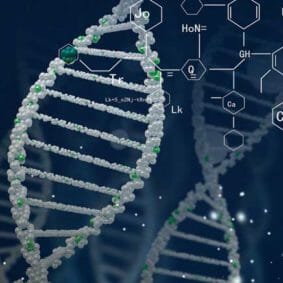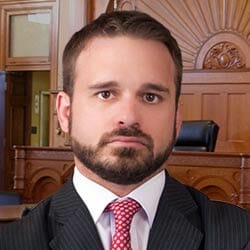December 29th, 2017 by Attorney Dan Carman

Technology is supposed to solve problems, not create them. DNA testing in Kentucky criminal cases should be an impartial, scientific, accurate way to determine whether a person was in contact with a crime victim or at least at the crime scene. As the use of DNA testing has expanded, more and more demands are made on it, and there’s evidence this approach to testing has been stretched beyond its limits.
DNA testing uses genetic information from cells found on a crime scene, evidence or the victim to see whether genetic information from cells of a suspect match. If not, there’s a good chance a case will be dropped, and there are many famous cases where DNA testing resulted in convicted defendants’ being exonerated and freed from prison. But what happens if mistakes are made during DNA testing and innocent people are convicted of crimes or, fearing the outcome of a trial, plead guilty to a crime they didn’t commit?
Problems can arise when tiny amounts of cells are found and those cells could be from multiple people. Given the complexity of the task, testing relies on software to come to conclusions. Depending on which software a lab uses, the results may be that there’s a match or not, which can mean the difference between being convicted or going free.
ProPublica investigated the issue and used the conviction of Mayer Herskovic as an example of the problems that can arise with the use of DNA evidence.
- In 2013, Taj Patterson, an African American, was beaten by a group of male Hasidic Jews in Williamsburg, Brooklyn, where there’s a large population of Hasidic Jews.
- During its investigation, the police found one of Patterson’s sneakers on a nearby roof; he told police he was punched and kicked by the person who took it off.
- The New York City crime lab got about a tenth of a billionth of a gram of DNA material from the bottom of the heel and found DNA from more than one person.
- Herskovic complied with a police officer’s request for a DNA sample (against his attorney’s advice) and the lab found that Herskovic was a match.
- There was no other physical evidence at the scene implicating Herskovic, no security camera footage of him, and the victim (blinded in one eye by the attack) did not identify him as one of the assailants.
- Four other suspects were arrested and several others were identified by witnesses, seen on surveillance video, or had their license plates photographed at the scene. Two pleaded guilty to misdemeanors, and charges were dropped against the other two.
- Only Herskovic was tried, convicted and sentenced to prison, for four years (he has been released pending an appeal), based on practically no evidence other than the DNA test results.
The New York City Police lab has since stopped using the method that lead to Herskovic’s conviction. But while it was used, police departments throughout the country sent samples to the lab, and there have been appeals filed across the country challenging its results. Herskovic’s appeal is based on the fact that the technique was never tested on a population as isolated as the Hasidic Jews of Williamsburg, who very likely share many of the same ancestors and much of the same DNA.
The National Institute of Standards and Technology has started a new study of some types of DNA analysis used in criminal prosecutions, including those used in Herskovic’s case, according to ProPublica. Its goal is to develop a new set of national standards for DNA analysis.
The use of DNA testing produces results that can have a powerful effect on juries. Providing DNA evidence is not something that should be taken lightly and should be volunteered only after consultation with a criminal defense attorney.
If you or a family member is being investigated by law enforcement or has been charged with a crime, Lexington, KY, criminal defense attorney Dan Carman can help. He knows how the Kentucky criminal justice system operates and will work closely with you every step of the way. Based in Lexington, he represents clients throughout Kentucky who find themselves on the wrong side of the law. Let him work with you to plan the aggressive defense that you will need. Use the convenient online inquiry form or call 859-838-1415 for a free initial consultation.

 Focusing on criminal matters, Mr. Carman is admitted to practice law in all Courts of the Commonwealth of Kentucky, the United States District Courts for the Eastern and Western Districts of Kentucky, and the United States Court of Appeals, Sixth Circuit. He is a member of the American, Kentucky, and Fayette County Bar Associations. Mr. Carman also worked as a prosecutor, as well as a legal assistance attorney. Attorney Dan Carman can help you with any criminal defense matters you may need including; DUI, drug, and weapons charges, trespassing, traffic violations and more. [
Focusing on criminal matters, Mr. Carman is admitted to practice law in all Courts of the Commonwealth of Kentucky, the United States District Courts for the Eastern and Western Districts of Kentucky, and the United States Court of Appeals, Sixth Circuit. He is a member of the American, Kentucky, and Fayette County Bar Associations. Mr. Carman also worked as a prosecutor, as well as a legal assistance attorney. Attorney Dan Carman can help you with any criminal defense matters you may need including; DUI, drug, and weapons charges, trespassing, traffic violations and more. [